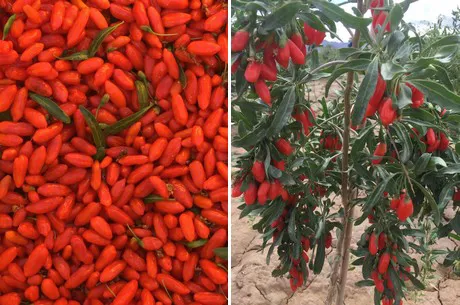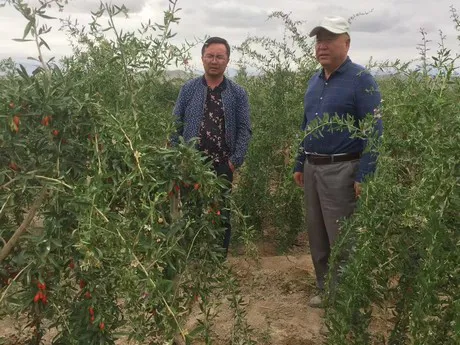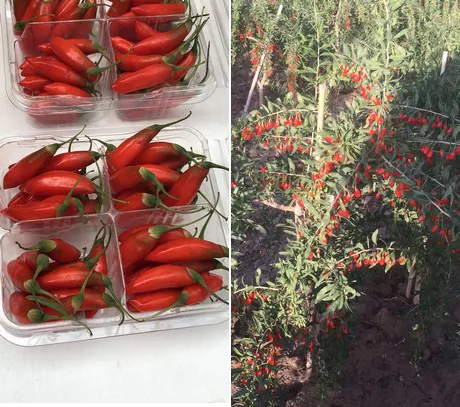The goji berry season started about a month ago. “In terms of production, due to the colder weather experienced at the beginning of the season, the berries ripened later this year in Qinghai. The production of the first and second batches is lower, and the overall production is about 40% lower than that of the same period of last year. We are now harvesting the third batch of this season, and the fruit setting is better. The overall production this year is expected to be around 1,000 tons. Our export prices are currently at 14-15 US dollars/kg, about 20% lower than the same period of last year. Lower prices are mainly due to the fact that there have been varied offerings on the market and traders have been setting their pricing randomly over the recent years, which has seriously disrupted the market order and lowered the export price,” reported Ma Ruijun, manager of Deling Haqizhiyuan Trading.
The company offers dry goji berries. Their products are mainly exported to North America and Europe, especially the US and Germany who absorb substantial volumes. A small volume of products is marketed via local sales channels in China.
“A few years ago, our export volume stabilized at around 1,000 tons per year, but with our products entering more new markets, our export volume is expected to increase by about 20% this year.”

The harvest season in Qinghai lasts from early August to the end of September. This year's export season began in mid-September and is expected to last through to December. Berries not yet exported will be put into cold storage and supply the local sales channels.
“The quality of our export products is much higher than those marketed locally. There is a shortage in supply every December and January when there are basically no products in the market that can meet the export standards,” Manager Ma said.
“Overseas customers are increasingly strict with the standards for goji berries, and our growing centers have been continuously improving planting and processing techniques, as well as improving operational management standards over recent years, in order to maximize customer satisfaction.”

When it comes to the competitiveness of locally grown goji berries, Manager Ma said, “The goji berry is a premium fruit in the overseas markets. Because of its rich nutritional value, it is known as a superfood, and consumers overseas have grown increasingly familiar with this fruit over recent years. In terms of quality, locally grown berries are full in size, fleshy, and high in sugar content, but the disadvantage of the industry is that it has a weak ability in deep processing. The market is unregulated, and there aren’t established brands. In order to export Chinese goji berries, on top of ensuring high-quality, building a brand is a key."

Deling Haqizhiyuan Co., Ltd. has more than 8,000 mu of plantations that have been granted ECOCERT, Green AA, and GAP certifications.
More information:
Contact: Ma Ruijun
Company: Deling Haqizhiyuan Co., Ltd.
Mobile: +86 13469675388
E-mail: 1947915947@qq.com
